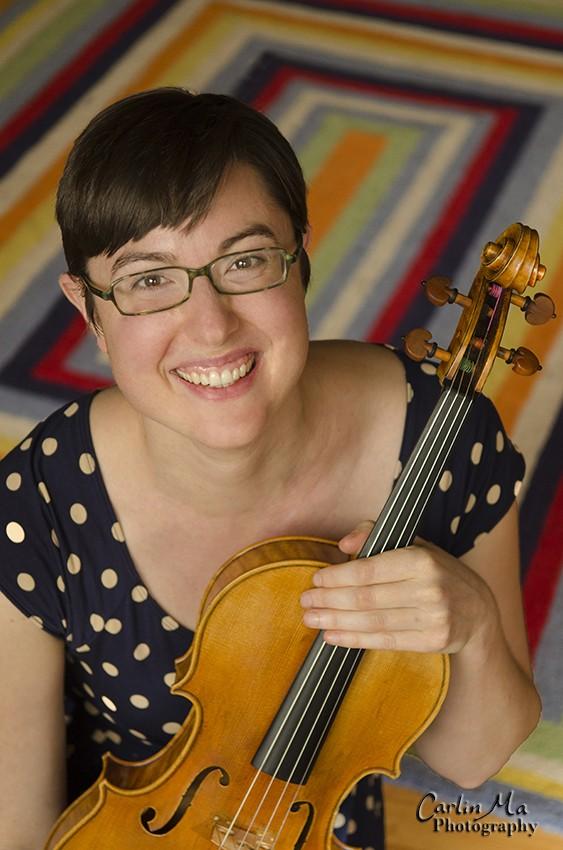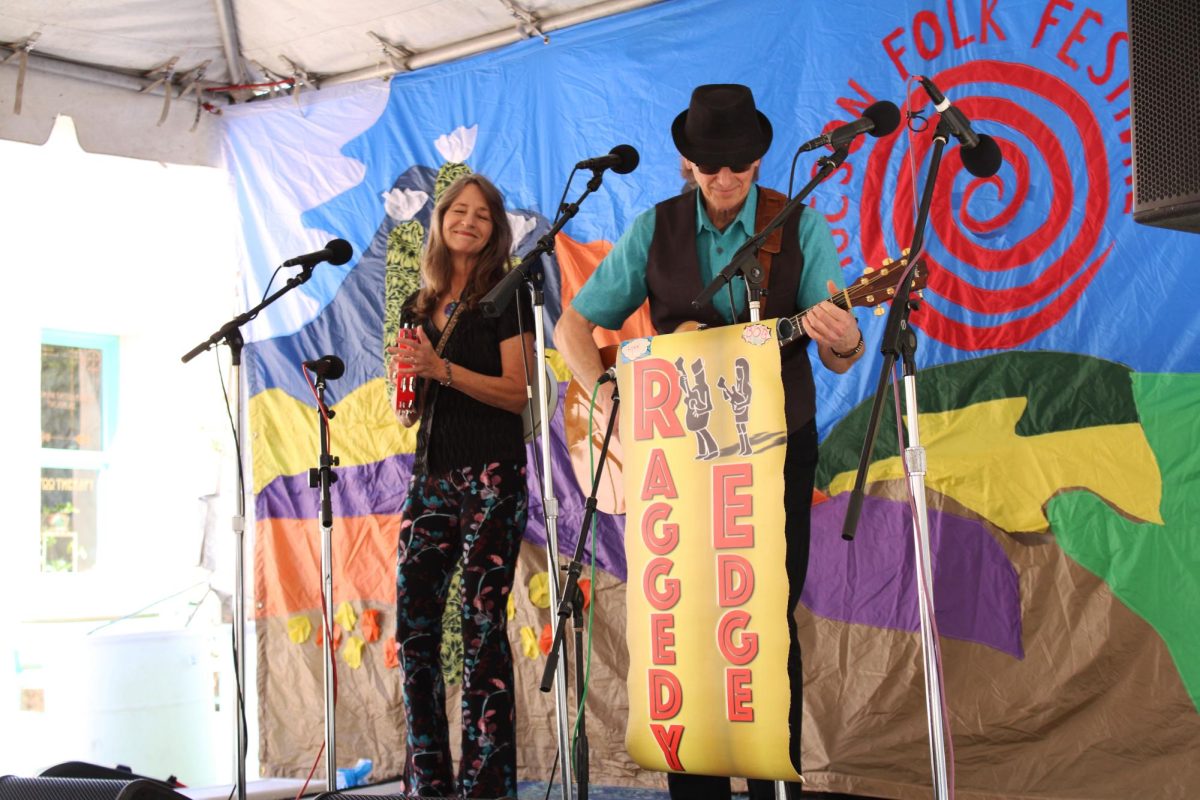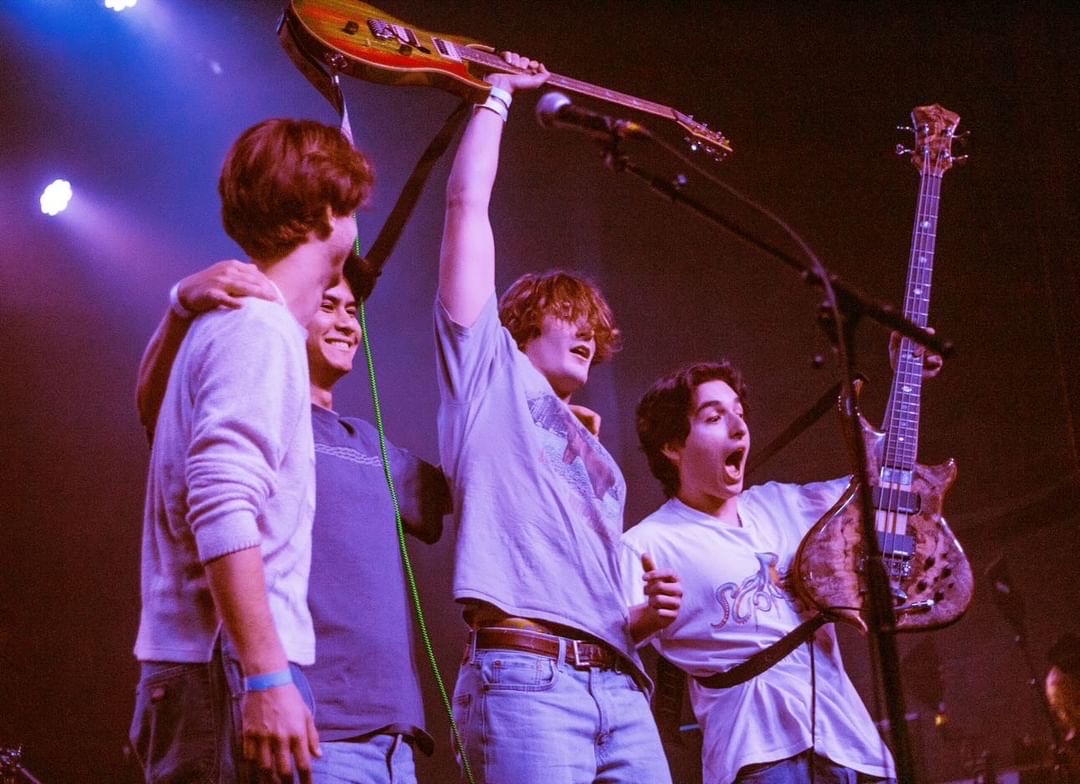This Sunday at 7 p.m. in Holsclaw Hall, two Fred Fox School of Music faculty, Molly Gebrian on viola and Nino Bakradze on piano, will perform “A 1919 Centennial Celebration.”
The event flyer details the focal points for celebration — three influential viola pieces, all composed in 1919. The Daily Wildcat spoke with Gebrian, a new assistant professor at the Fred Fox School of Music and the viola soloist spearheading the event, about the instrument’s significance and what show attendees can expect.
Daily Wildcat: I saw in your online bio that you’ve studied at many different universities under various teachers, and I wondered just when you started playing the viola.
Molly Gebrian: Well, I started on violin when I was 7. I started on cello when I was in fourth grade, and I started in viola when I was in fifth grade. So, I played all three for a while.
DW: What about the viola made you stick with it all the way into your professional career?
MG: You know, that’s a great question. Apparently, when I was two, my mother took me to [the orchestra] — you know orchestras often do kids’ concerts and my mother took me to one of those. I have no memory of this, of course, and something that they did featured the violin. When I was 2, I said, “Mommy, I want to play that.” She was like, “Okay, you’re 2, what do you know?” But I kept asking until, finally, when I was 7, she got me lessons … There was something about string instruments that just spoke to me and I can’t tell you what that thing is. There was just something compelling about it … because when I was a kid, I hated to practice and in third grade I wanted to quit, but the only reason I didn’t actually was because I told my mother, “I don’t want to do this anymore,” and she said, “Okay, that’s fine. Just tell your teacher at your next lesson you don’t wanna play anymore,” knowing full well that I would never ever have the guts to do that. I don’t know, there was something that kept me going through all those years, but I can’t tell you what it was.
DW: I also saw that you’ve done a lot of research on neuroscience, music and the brain. Can you tell me a little bit about that and what your focuses are on?
MG: So that’s the other part of my life. My main focus with neuroscience is taking the research that has been done by other people on learning and memory and how humans learn anything, and applying that specifically to musicians — learning an instrument, practicing, that type of thing. That’s the main thrust of my interest in neuroscience, is learning and memory. The other side is, I also have an interest in publishing papers having to do with music and early language acquisition. There’s a lot of overlap there. That isn’t really connected at all with what I do as a musician. The learning and memory stuff is deeply intertwined in my teaching and my own playing.
DW: What is the significance of the year 1919 to violists?
MG: There’s nothing special about 1919 in and of itself, other than these three pieces happen to be written in that year and these three pieces happen to be really important pieces for violists. Two of the pieces, the Rebecca Clarke sonata and the [Ernest] Bloch 1919 suite, they were actually written for a competition that was sponsored by a prominent American arts patron, Elizabeth Sprague Coolidge, and this was a competition for a viola sonata. Submissions to the competition were anonymous, and we actually don’t know the identity of most of the other sonatas that were submitted because they were anonymous. The Bloch and the Clarke were the two finalists and, in the end, the judges couldn’t make a decision. They were deadlocked, so Sprague Coolidge was called in to break the tie. She actually knew the identity of both composers; she was personal friends with both of them and she cast the winning vote for the Bloch because she felt that a man winning would lend more credibility to this competition because it was 1919. When it came out who the composers were for the two finalists, there were two different reactions to the fact that a woman had written the sonata by Rebecca Clarke. One reaction was that some of the judges started backhandedly disparaging the piece … They couldn’t decide, so clearly they thought it was a good piece before they knew it was by a woman. The other reaction was to say that Rebecca Clarke must be a pen name for a male composer, like it couldn’t possibly be written by a woman. Those two pieces are kind of connected in history because of the competition. [Paul] Hindemith wasn’t allowed to enter the competition. He’s German and composers from the countries that the U.S. fought against in World War I were not allowed to enter. They’re just very important pieces for the viola. All students study them in the course of their studies. So, in 2019, violists all over the world were given exactly this recital, playing these three pieces, to celebrate the centennial. I’m a little bit late but close enough.
DW: What about them makes them so special?
MG: They’re great pieces of music, so that’s the first thing. Second of all, the viola is known as the ugly duckling of the string family. Violin is really famous, cello is really famous. The viola — we don’t have nearly as much repertoire, so to have each of these pieces are huge. The shortest one is twenty minutes, that’s the Hindemith. The longest, the Bloch, is thirty-five. They’re really long, big substantial pieces. We as violists … don’t have a lot of rep that falls into the category of great piece … so that’s why they’ve become such an important part of our repertoire.
RELATED: Incarcerated artists find hope in creating an art exhibit
DW: Clearly things have changed, but is there still an experience of marginalization, like that experienced by Rebecca Clarke, for people in certain groups?
MG: Oh, definitely. It’s changing, and it’s started changing more rapidly in the last five years. But before even five years ago, if you were not white, male and dead, your music was essentially not performed. You can look up the statistics on how many pieces by women are performed by major orchestras around the world — it is vanishingly small. It’s changing now … because of the Me Too movement actually, … and because of all the anti-immigrant sentiment in this country right now, musicians especially are starting to realize, ‘Wait we’re complicit in this too; we only program music by dead white guys. That’s so not okay.’ There’s so many composers out there, living and dead, that aren’t white and aren’t male that wrote fantastic music. It’s unusual for me to be playing a recital of really standard music like I am on Sunday because one of my priorities as a performer is to perform music that is not as well-known, specifically by composers of color or composers who are women, because their work has been marginalized for so long. There’s so much great stuff out there that just doesn’t get performed. That’s a big issue in classical music, but there’s been more change in the last five years than there has been in the whole history of classical music, I would say.
DW: So, going into some viola history … how did it grow to be popular, and what has been its use throughout history?
MG: I wrote my dissertation on this, so I could talk to you all day. The viola predates the violin — most people don’t know that — but back in the day, like 1600s, 1700s, 1800s …, viola parts weren’t that good. The violin has the melody, so the viola parts weren’t that interesting. The only people that played viola were people that wanted to play but were terrible musicians or musicians who had played other instruments that had gotten too old to play well anymore, so they were shuttled off into the viola section. There’s not really good music for viola, so nobody that’s good wants to play it. And then there’s no good violists, so composers don’t want to write stuff that’s more interesting, because it’s not gonna sound good, because the players can’t play it. So, it’s this vicious cycle until the 20th century, actually, quite recently. So, most of our solo repertoire comes from the 20th century or later.
DW: I like an underdog story.
MG: Yeah, the viola is the ultimate underdog story.
Follow Capri Fain on Twitter















